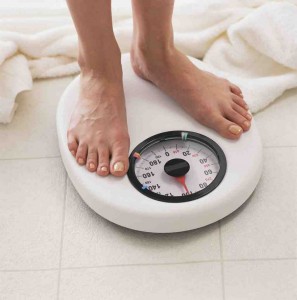It has been long known that in countries where the socio-economic gap is high, the poor die sooner. The risk of dying also increases if one is in an unhappy job situation or having a stressful life at home. There have been many studies that have shown that being overweight or obese increases our risk of dying sooner. But when these studies are adjusted for socio economic factors, then the relationship between weight and risk of death becomes surprising.
Now being overweight or obese carries the same risk as “normal” weight people. In fact being overweight carries a slightly less risk. The underweight and those who are morbidly obese have substantial risks of dying sooner. This is a huge surprise!
Let us understand this better:
- Body Mass Index or BMI is determined by dividing your weight in kilogram by the square of your height in meters. If you do not want to do the math you can use this calculator to find your BMI.
- Those with BMI less than 18.5 are considered underweight and those with BMI over 35 are considered morbidly obese. Both these group have substantial risks of dying sooner. The low BMI people will improve their life expectancy by gaining weight and those with BMI above 35 should plan to lose weight.
- Those with BMI between 18.5 and 24.9 are considered “normal”. While those with BMI between 25 and 29.9 are classified as “overweight”. If you have a BMI between 30 and 34.9 then you are classified as “obese”. After adjusting for socio-economic factors, the risk of dying is same for those classified as “normal” and “obese”. The risk of those in the “overweight” category is slightly less than compared to the other two groups.
- If you are sedentary, then irrespective of the weight group you belong to, your risk of dying is increased substantially. In such cases if you add a daily 20 minute walk at a relaxed pace to your routine, you can make substantial gains to your life expectancy.
- If the circumference of your waist is more than the circumference around your hip then your risk increases. Thus if your “gut to butt” ratio is over 1 and if you are man, and over 0.9 if you are a woman, then your risk of dying is increased.
So what are the takeaways?
- Quit obsessing over your weight if your weight puts you in the overweight or obese category.
- You can increase your life expectancy by reducing stress levels. You can do this by getting a less stressful job or moving up the socio-economic ladder. You can also improve your life expectancy by leading a non-sedentary life.
- If your “gut-to-butt” ratio is a concern then take up yoga. This is the best-known way to get this ratio in line. Yoga will also reduce stress levels. Stress is a known risk factor for dying sooner.
Weight is overrated indicator of your health if viewed in isolation. This is because weight is the net result of many things that are going on in our lives. By just focusing only on weight we set ourselves up for failure and may even make things worse. For example if you are obese and poor then it may be more important to focus on improving your skills and improving your socio-economic status than worry about your weight. When your socio-economic status improves your risk of dying sooner than normal reduces, on the other hand just reducing your weight does nothing to improve your life expectancy. This article provides you with the information you need to determine the best course of action to take in different circumstances. Please share it or press on the like button to spread the word around.
Credits:This has been written by Raj Shah and edited by Ketna Shah. It is based on Dr. Nortin Hadler’s book: “Rethinking Aging”.
You may also like: The Yoga Of Weight Loss


Nice analysis and summary! Thanks.